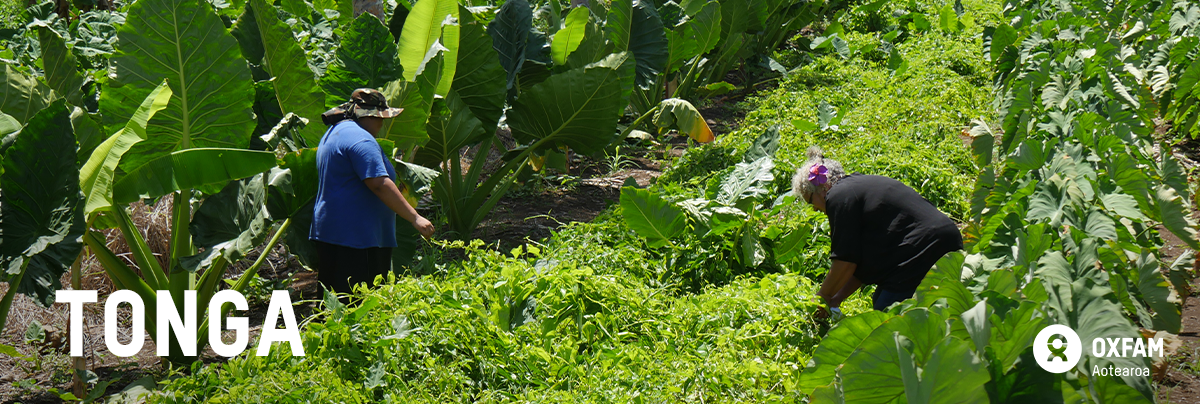
Country profile:
The Kingdom of Tonga is a remote, low-lying archipelago in the South Pacific comprised of 171 islands. Over two-thirds of the population live on the largest island of Tongatapu.
Tonga has a vulnerable small island economy and is susceptible to natural disasters. Its isolation and scattered population create economic difficulties including high transport costs and limited markets. There are very few salaried employment opportunities for young people and a high level of outward migration, with a heavy dependence on Tongans earning income outside the country and sending it back home. Those who do stay and work in Tonga are overwhelmingly engaged in work with agriculture, forestry and fisheries.
It is a constitutional monarchy undergoing political reforms. The country is slowly inching towards full democracy and addressing issues of representation, accountability and transparency.
Quick facts from the UNDP Human Development Report and The World Factbook:
Region: Polynesia
Capital: Nuku’alofa
Population: 105,780 (July 2021 est.)
GDP per capita (USD): $4903 (2019)
Human Development Index: 0.725 (2019)
Language: Tongan, English
Adult literacy: 99.4% (2018)
Life expectancy: 77 years (2021)
Access to safe water: 99.6% (2020)
Access to toilets: 98.9% (2020)
Infant mortality rate: 12.73 deaths/1,000 live births (2021)
Most of the population have access to basic infrastructure and only 8.3% have no access to electricity. (2021)
Only 2% of land titles are owned by women. (2019)
64% of women have experienced gender-based violence in their lifetime. (2020)
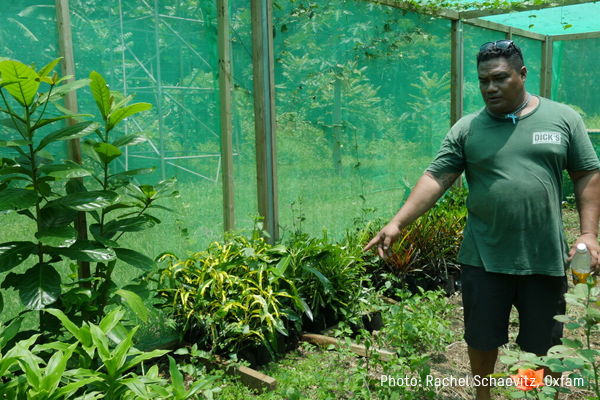
In January 2022, Hunga Tonga-Hunga Ha’apai (HTHH) erupted and Tonga is still recovering from its effects. Ash blanketed crops and massive waves destroyed fishing boats and soaked fertile farmland with salt water. Our long-time partners, Tonga National Youth Congress (TNYC) leapt into immediate action desalinating and distributing safe water to affected populations, particularly women, children, people living with disabilities and the elderly.
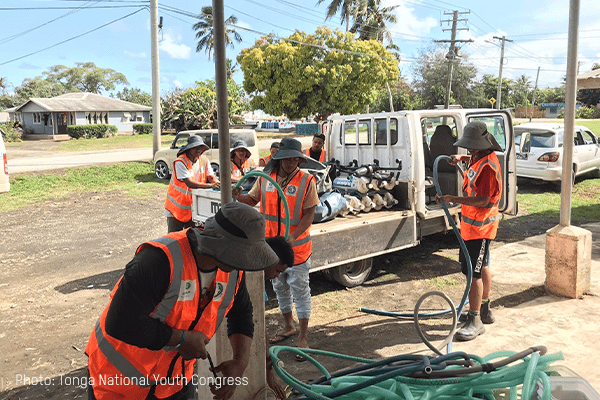
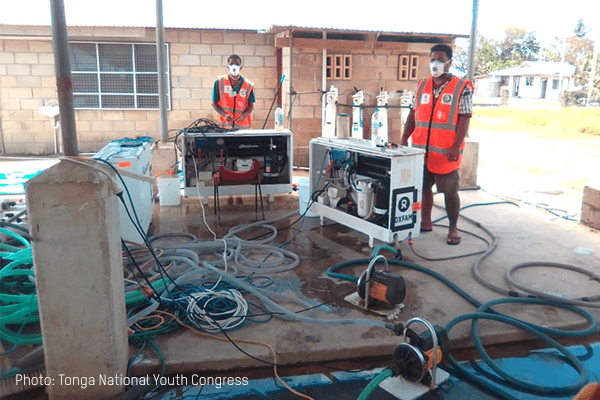
Tonga National Youth Congress (TNYC)
Tonga National Youth Congress (TNYC) is one of Oxfam’s local partners in Tonga.
Established in 1991, TNYC is a civil society organisation that works with youth to encourage and empower their talents and creativity.
TNYC is the national focal point for organic farming. They promote and develop income generation opportunities through the Future Organic Farmers of Tonga (FOFT) programme. In partnership with the Ministry of Agriculture, it provides training, farm demonstrations and monitoring and evaluation of agricultural activities.
TNYC raise awareness of the benefits of organic farming and provide support and advice on local and international marketing strategies. They also coordinate a network of organic organisations. Collective action means that organic growers can be more effective in lobbying the government for support.
Past projects
Oxfam’s RESULT programme worked together with The Tonga National Youth Congress (TNYC) to ensure that organic farming is sustainable for farmers. The goal was to establish a viable youth-led and community-focused business, selling virgin coconut oil and dried vanilla bean.
Cash for Crops
Once the immediate needs were met in the aftermath of the HTHH eruption, Oxfam began work with another partner, the Civil Society Forum of Tonga (CSFT) to look at livelihoods.
Farming families throughout Tonga found themselves either with an entire harvest’s worth of crops destroyed by sea water or a healthy harvest, but no means to transport it to market to sell it.
Oxfam collaborated with 12 farms to help harvest crops, buy them, and redistribute them to families who had been displaced.
These farms were supported with labourers hired from the communities, so both the farms and the local labour population benefitted. Where other programmes might ship in non-perishable imported food to communities after a disaster, this programme focused on sourcing the locally-grown, nutritious produce that are staples of the Tongan diet and redistributing it to families in need.
This initiative, known as Cash for Crops, has benefitted about a thousand families from Patangata, Popua, Ha’atafu and Kanokupolu villages and Fonoi and Numuka Islands.
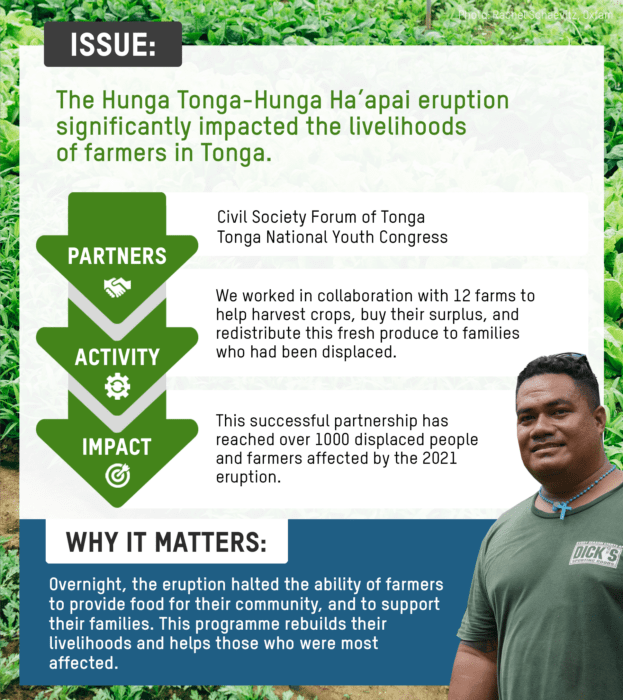
BY SUPPORTING TONGA YOU WILL
Help to provide hygiene kits containing essentials such as soap, reusable water buckets and food parcels.
Help give families the tools, raw materials, and supplies they need to rebuild their farms and fishing businesses.
Help build, deliver, and maintain desalination units that produce clean drinkable water from sea water.





